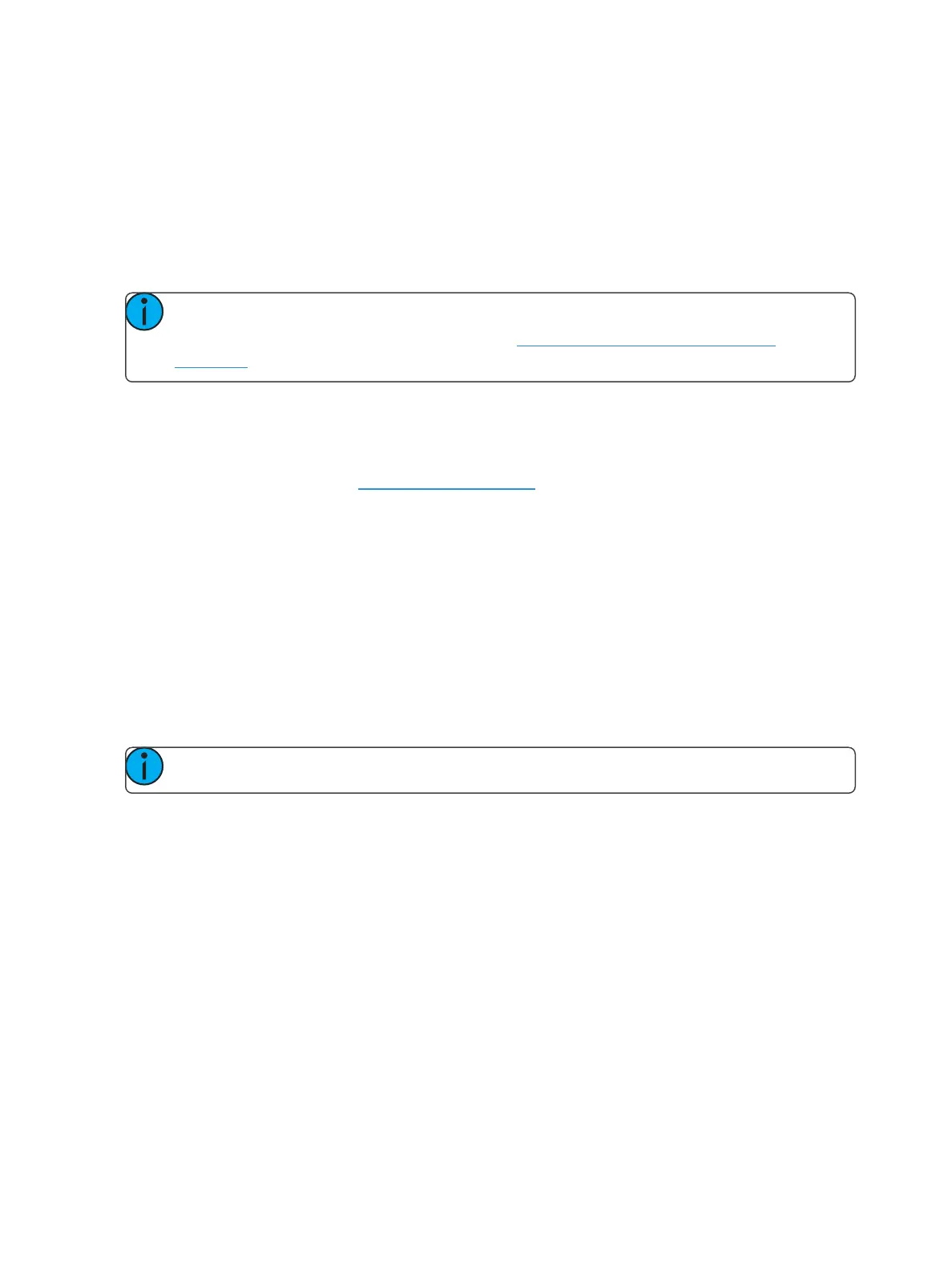Storing and Using Submasters 367
Once the non-intensity-parameters are at their end state, the slider only controls intensity. When
dropped toward zero, controlled intensities will be faded toward zero.
When non-intensity parameters on a intensity master submaster have been marked using the bump
button, the LED on its bump button will blink to tell you that the non-intensity parameters have been
marked.
Pressing the bump button for an intensity master submaster that is currently bumped will release the
non-intensity parameters using the bump button timing. Its bump button LED will also be turned off.
Note: For channels that have been set to GM Exempt in Patch, Intensity Master control will
not impact the intensity of those channels. See {Attribute} Display and Settings (on
page133)for more information.
HTP
Intensity playback behavior can be set to HTP (highest takes precedence) or LTP (latest takes pre-
cedence). Non-intensity parameters are always LTP. Eos defaults all submasters to HTP. For more
information on HTP and LTP see HTP vs. LTP (on page17).
Restore
Submasters can be placed into restore modes of minimum or background, which is the default.
When a submaster is in the restore to background mode, the restore column of the submaster list dis-
play will be blank. When in minimum mode, 'Min' will display in the restore column.
The restore mode of background means that when the submaster is returned to zero, control will be
restored to the background value, such as another submaster or a cue.
The restore mode of minimum means that when the submaster is faded down, control does not go
to the previous background state but to the parameters’ minimum value.
Priority
Note: Priority was previously called Independent.
There are 10 levels of priority for submasters. 1 is the lowest and 10 is the highest. The default pri-
ority level is 4.
Shielded
Submasters can be shielded, which means that their content is automatically made exclusive and
can't be controlled by anything other than that submaster and park, including by manual control.
Shielded has a higher priority than 10.
Channels stored to shielded submasters will display in yellow with a superscript ‘s’ beside it.
If channel parameters stored to shielded submasters were previously stored to cues or other sub-
masters, those instructions will be ignored on playback.
If the same channels are assigned to more than one shielded submaster, control of those channels
will be shared on either a LTP or HTP basis depending on the settings for the submasters.
